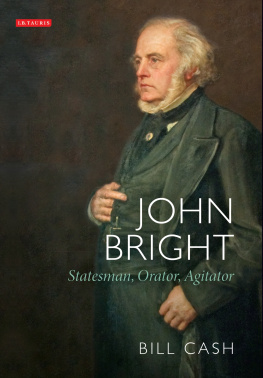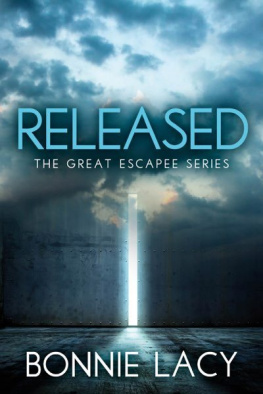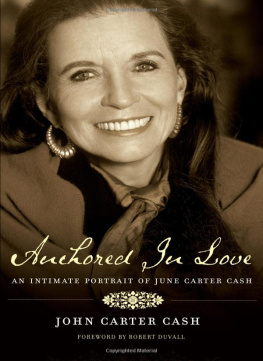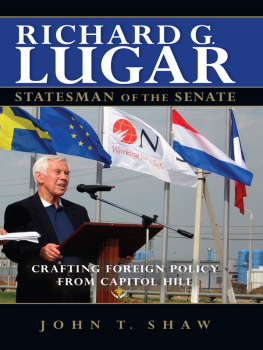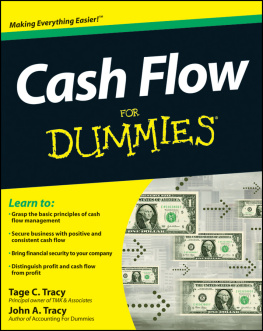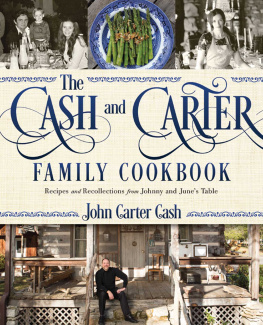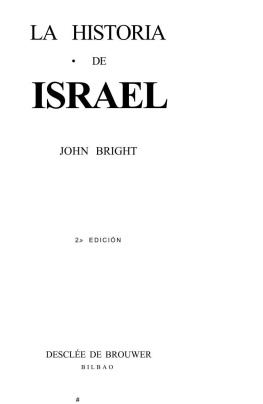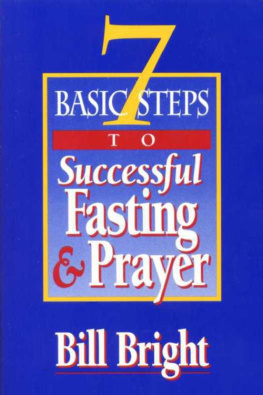Bill Cash is the Member of Parliament for Stone. He was educated at Stonyhurst College and Lincoln College, Oxford, where he read History, and has since practised law as a solicitor. He has been in Parliament for 27 years and was Shadow Attorney-General and Shadow Secretary of State for Constitutional Affairs. He is Chairman of the European Scrutiny Committee of the House of Commons. The Spectator named him Parliamentary Campaigner of the Year in 1991. As well as being the author of several books on European affairs, Bill Cash writes regularly for national newspapers, including The Times and the Daily Telegraph and has made frequent appearances on radio and television. John Bright was his great-grandfathers cousin.
With this well-researched, well-written and sometimes deeply passionate book, Bill Cash has single-handedly saved one of Britains greatest statesmen from an ill-deserved obscurity. Often using Brights own fiery language, he has turned the once-forbidding Victorian granite statue back into a flesh-and-blood fighter for justice and human decency. Bright was a key figure perhaps even the key figure in the struggle for democracy in Britain, yet his legacy was largely forgotten until this first-class, encapsulating biography. Andrew Roberts,author of Salisbury Victorian Titan
John Bright is a major biography about one of the towering politicians of the Victorian era. Bill Cash not only breathes new life into Bright but delivers an entirely fresh view of both the man himself and his stance as the professional scourge of the upper classes. Bright was always his countrys greatest critic, and yet also its greatest parliamentarian. This and all the other contradictions that made up Brights character receive their full due in Cashs nuanced portrait. Amanda Foreman,author of A World on Fire and Georgiana, Duchess of Devonshire
From the campaign for popular democracy to the fate of empire, the American Civil War to the roots of globalisation, John Bright was one of the most influential figures of the nineteenth century. Bill Cashs biography restores Bright not only to his rightful place at the heart of Victorian England but also as one of the creators of the modern age. Graham Stewart,author of Burying Caesar: Churchill, Chamberlain and the Battle for the Tory Party

For my children,
William, Sam and Laetitia,
and my grandchildren,
Tess, Arizona, Lucas and Frederick
Published in 2012 by I.B.Tauris & Co Ltd
6 Salem Road, London W2 4BU
175 Fifth Avenue, New York NY 10010
www.ibtauris.com
Distributed in the United States and Canada Exclusively by Palgrave Macmillan
175 Fifth Avenue, New York NY 10010
Copyright 2012 Bill Cash
The right of Bill Cash to be identified as the author of this work has been asserted by him in accordance with the Copyright, Designs and Patent Act 1988.
All rights reserved. Except for brief quotations in a review, this book, or any part thereof, may not be reproduced, stored in or introduced into a retrieval system, or transmitted, in any form or by any means, electronic, mechanical, photocopying, recording or otherwise, without the prior written permission of the publisher.
ISBN: 978 1 84885 996 8
eISBN: 978 0 85773 015 2
A full CIP record for this book is available from the British Library
A full CIP record is available from the Library of Congress
Library of Congress Catalog Card Number: available
Designed and typeset by 4word Ltd, Bristol, UK
Illustrations
Text
Plates
John Bright, 1843. (National Portrait Gallery)
Richard Cobden, 1855. (Photo by W. & D. Downey/Getty Images)
Richard Cobden addressing the Council of the Anti-Corn Law League, 1846. John Bright sits to his right, holding a document towards which Charles Villiers is pointing. (Photo by Hulton Archive/Getty Images)
Sir Robert Peel. (Carlton Club)
Earl of Derby. (Cash family collection)
Viscount Palmerston. (Cash family collection)
William Ewart Gladstone. (Cash family collection)
Earl Russell. (Cash family collection)
Benjamin Disraeli. (Carlton Club)
Abraham Lincoln. (Cash family collection)
Charles Sumner. (Library of Congress Prints)
Richard Cobden and John Bright. (Rochdale Library)
Gladstones Cabinet of 1868. This painting is now in Committee Room 14 of the House of Commons. (National Portrait Gallery)
John Bright, Richard Cobden and Michel Chevalier following the signing of the French Commercial Treaty, 1860. (Cash family collection)
Samuel Lucas. (Walkers Galleries Ltd)
Joseph Chamberlain. (Carlton Club)
Wedding of John Theodore Cash and Margaret Sophia Bright, 1881. John Bright stands next to his daughter, the bride. The authors great-grandparents, William and Rachel Maria Cash, are standing back row, 4th and 5th from left. (Cash family collection)
Acknowledgements
Over the many years of working on this book, I have had help and encouragement from a great number of people. Jo Godfrey and her colleagues at I.B. Tauris have been immensely constructive, perceptive and encouraging in bringing this book to its final form. In particular, I want to put on record my sincere thanks to Miles Taylor for his support, and to Stephen Roberts, Robert Saunders and Graham Stewart, whose specific observations led to a number of important corrections. I have also benefited greatly from conversations with many historians, including Keith Robbins, Amanda Foreman, Andrew Roberts, Alistair Cooke, and historically-minded Members of Parliament, in particular my good friend Richard Shepherd. I am also indebted to numerous former historians of the period, as the bibliography indicates. I would also like to put on record my gratitude for the interest in history and politics I derived from the late Geoffrey Holt, S. J. at Stonyhurst College, and my tutor, the late J. B. Owen of Lincoln College, Oxford.
Richard Clark, who is a direct descendent of John Bright and the custodian of the Bright papers, was immensely helpful at the Clark Archive at Street in Somerset, along with Charlotte Berry and Tim Crumplin, who painstakingly reproduced many of Brights letters and papers, Duncan Darbishire and family, also descendants, have been most helpful. My thanks go also to Lady Aberconway and Michael McLaren, QC for permission to photograph the portraits of John Bright by Millais and Duval at Bodnant Hall, and to Isobel Crawford for photographing them. These portraits appear on the front and back covers of the book. My thanks also to Mike Wootton for digitizing photographs of Gladstone, Russell, Derby, Abraham Lincoln and Cobden, Bright and Chevalier from our family collection, to Fanny Rush for photographing the portraits of Disraeli, Chamberlain and Peel at the Carlton Club, and to the Club Secretary, Jonathan Orr-Ewing, for permission to take the photographs.
Although written on an intermittent basis, this book has inevitably invaded parliamentary recesses and weekends and I have enjoyed continuous support and helpful criticism from my wife Biddy and my family, who have had more conversations about John Bright than they might otherwise have reasonably anticipated.
Finally, I owe a debt to my constituents, past and present, for reminding me on a daily basis of the value of the democracy we enjoy, and which John Bright so greatly influenced, with what should be, and must be, its firm foundations in the accountability of Government at Westminster.


